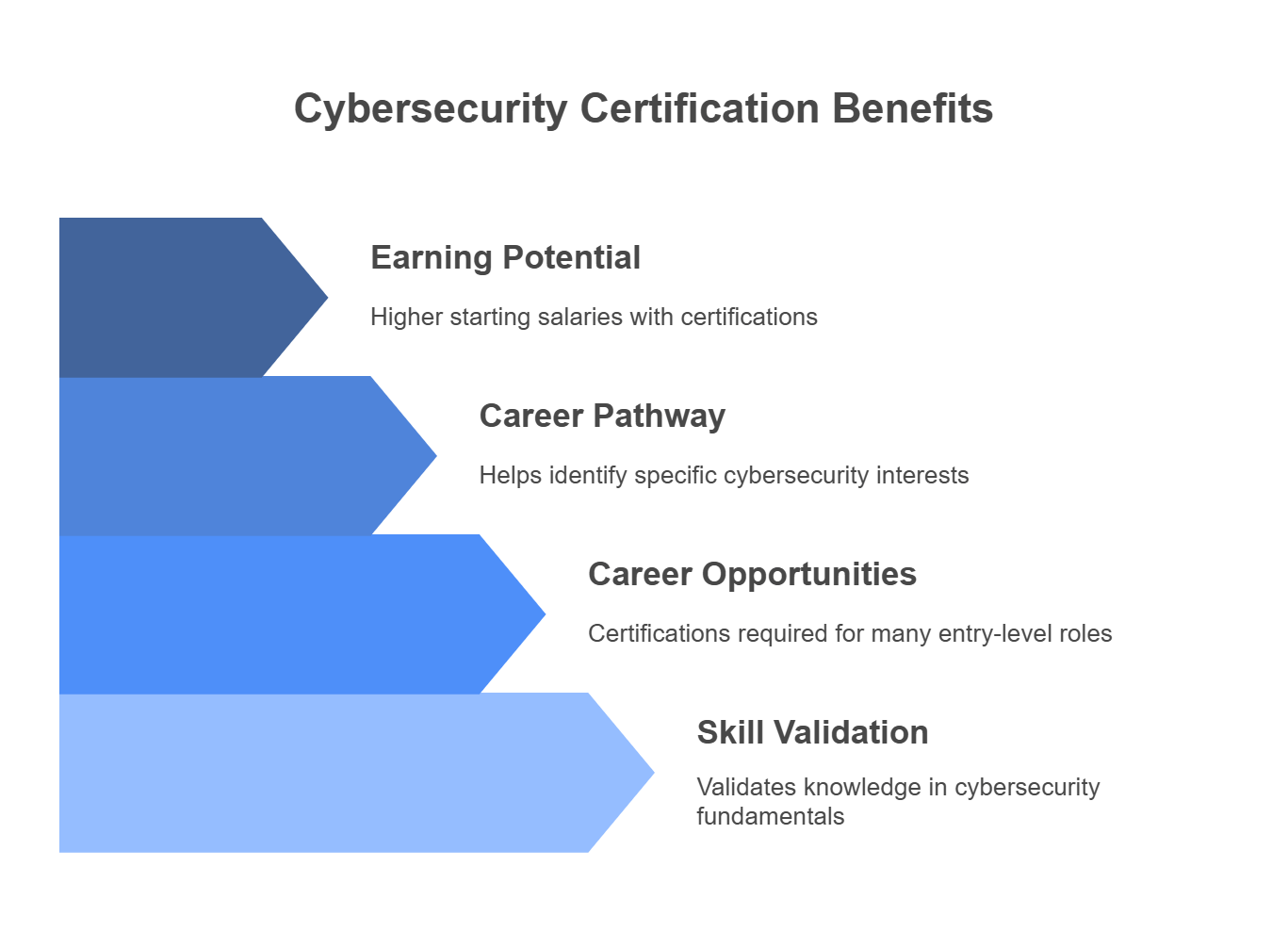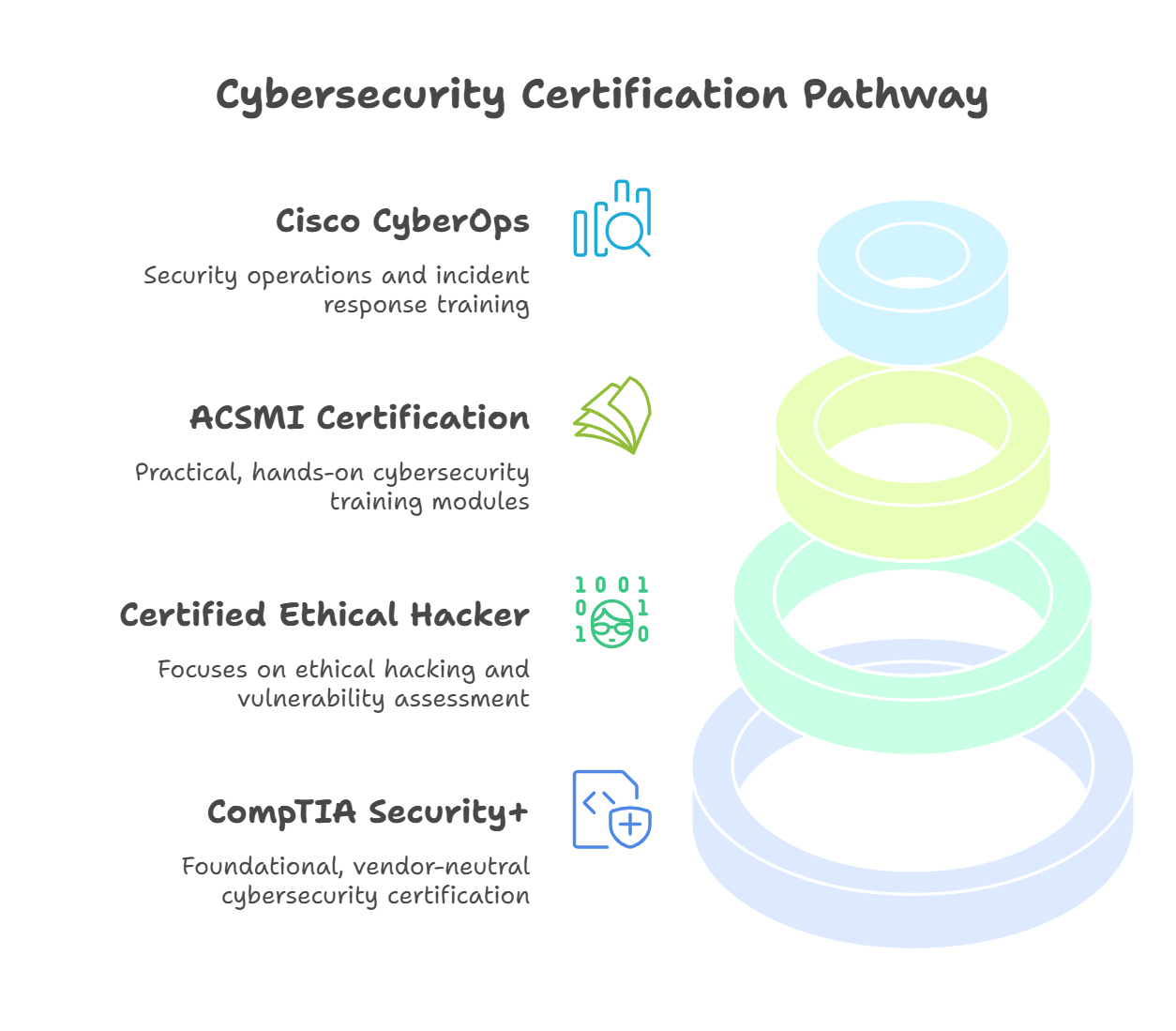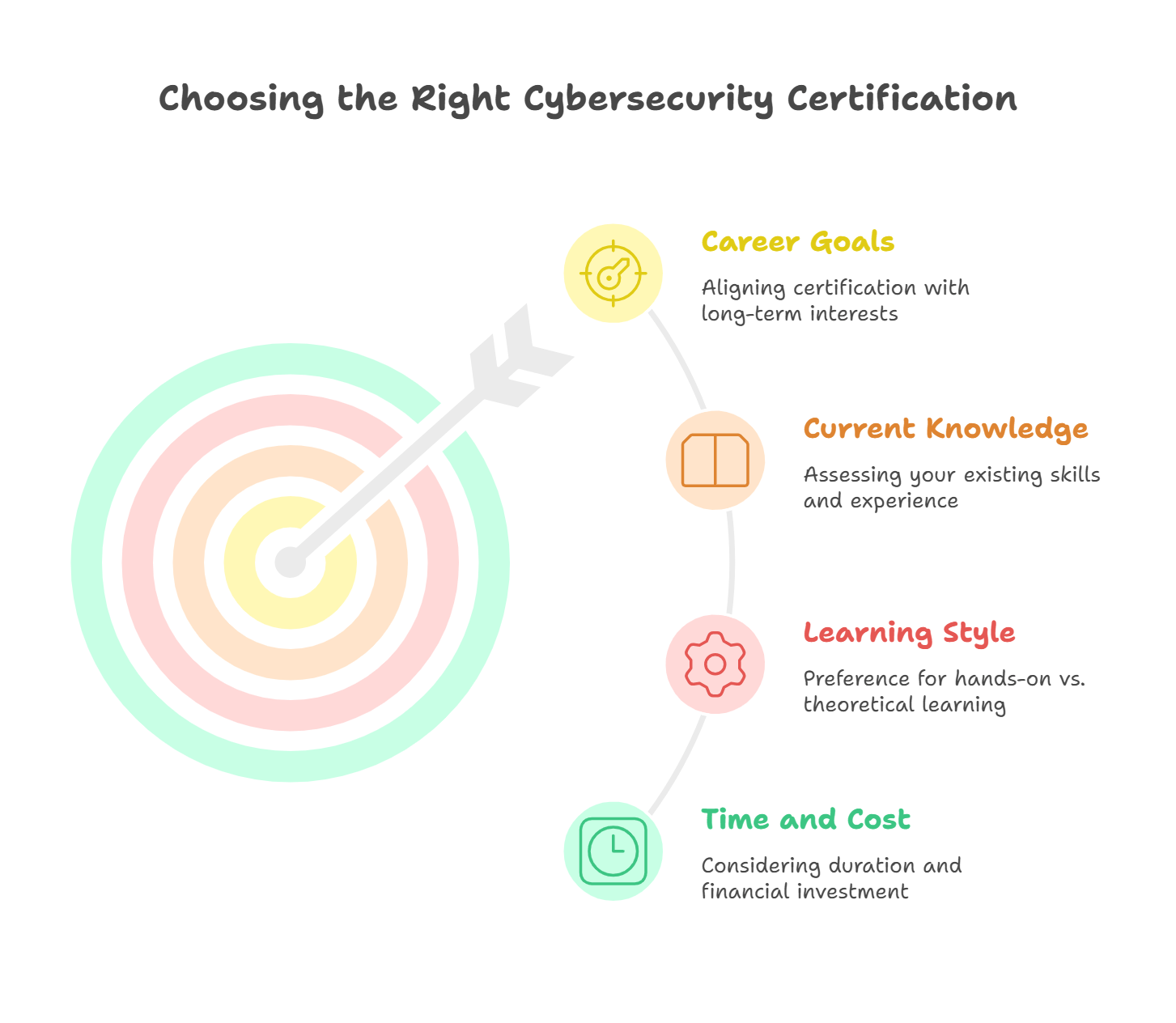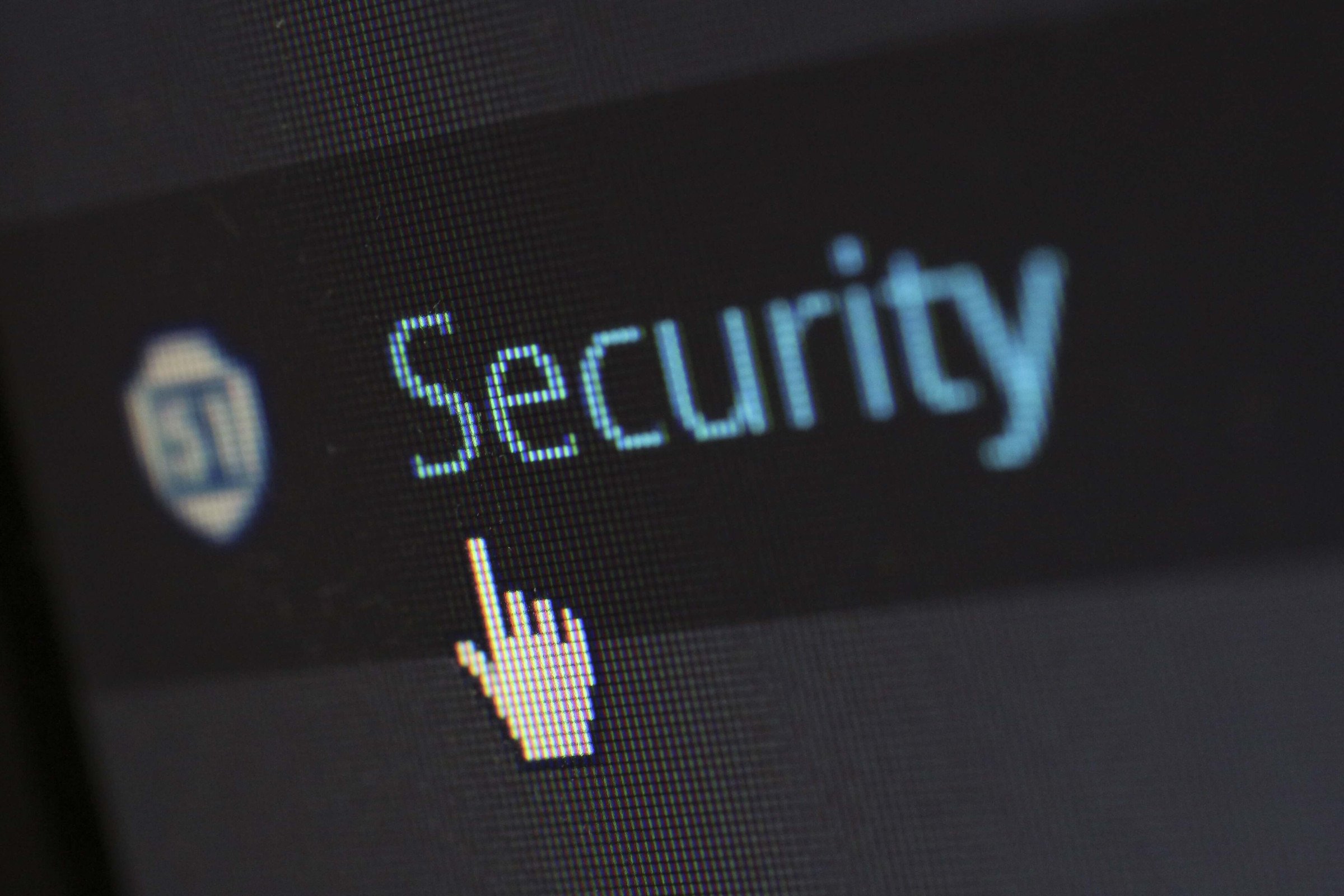Table of Contents
- Why Start With a Cybersecurity Certification?
- Key Advantages of Entry-Level Certifications
- What Cybersecurity Certification Should I Get First?
- How to Choose the Right Certification for You
- Why ACSMI Certification Stands Out
- 6 Lesser-Known Facts About Cybersecurity Certifications
- Final Thoughts
- FAQs About Choosing the Right Cybersecurity Certification
If you’re looking to kickstart your career in the fast-paced world of cybersecurity, you're not alone. With cyber threats on the rise and businesses scrambling to protect sensitive data, there has never been a better time to dive into the cybersecurity industry. But with a wealth of certifications to choose from, it’s understandable if you’re unsure about which Cybersecurity Certification Test to pursue first.
Choosing the right Cybersecurity Certification Test is crucial—it sets the foundation for your career and helps establish your expertise in a competitive field. Whether you're fresh out of school, transitioning from another industry, or seeking to build a new skillset, selecting the right certification is a critical step toward success in this high-demand sector.
Why Start With a Cybersecurity Certification?
The cybersecurity field is one of the fastest-growing industries in the world, with the global cybersecurity market projected to reach $300 billion by 2025. According to reports, cybersecurity jobs are expected to grow by 35% over the next decade, far outpacing other industries. As companies continue to face increasingly sophisticated cyber threats, the demand for cybersecurity professionals is skyrocketing.
Getting a cybersecurity certification is a great way to break into this growing industry. But beyond just getting your foot in the door, certifications provide something essential for both beginners and seasoned professionals: proof of your skills and knowledge. For newcomers, a certification not only validates your competency but also positions you as a valuable asset to potential employers.
Key Advantages of Entry-Level Certifications
Certifications help differentiate you from other candidates and give you the credibility needed to start your cybersecurity career. Here are several advantages of obtaining an entry-level certification:

-
Skill Validation: Cybersecurity certifications, such as CompTIA Security+ or ACSMI, validate your knowledge in fundamental areas like network security, threat management, and cryptography. This proves to employers that you understand basic cybersecurity concepts and are ready to contribute from day one.
-
Access to Career Opportunities: Many entry-level roles in cybersecurity require certifications as a baseline qualification. Certifications demonstrate to hiring managers that you have the necessary foundation to excel in the role.
-
Clear Career Pathway: Earning a certification helps you narrow down your interests and determine the specific area of cybersecurity you’d like to pursue. Whether it’s ethical hacking, risk management, or incident response, there’s a certification that can guide you on your chosen path.
-
Higher Earning Potential: Certification holders often enjoy higher starting salaries. Entry-level cybersecurity positions, for example, can start at salaries of $70,000 or more. As you progress and obtain more advanced certifications, your earning potential increases.
What Cybersecurity Certification Should I Get First?
The first Cybersecurity Certification Entry Level you pursue depends on your background, interests, and career goals. However, there are several key certifications that are widely regarded as ideal starting points for beginners.

1. CompTIA Security+
If you’re looking for a well-rounded, foundational certification, CompTIA Security+ is an excellent first step. This certification is one of the most widely recognized in the industry and covers essential topics such as network security, cryptography, risk management, and threat analysis. Security+ is a vendor-neutral certification, which means the skills you acquire can be applied to various IT environments. For beginners, it’s a comprehensive and accessible entry into cybersecurity.
The CompTIA Security+ certification is perfect for individuals who want to gain a broad understanding of cybersecurity concepts and then specialize later on. It is widely accepted by employers in industries such as finance, healthcare, and government, all of which require security professionals to protect sensitive data.
2. Certified Ethical Hacker (CEH)
If ethical hacking or penetration testing piques your interest, the Certified Ethical Hacker (CEH) certification may be the next step. This certification focuses on the techniques and tools used by ethical hackers to identify vulnerabilities in a system.
Although CEH is a bit more advanced than CompTIA Security+, beginners with an aptitude for problem-solving and a passion for cybersecurity can dive into this course. Ethical hacking is all about thinking like a hacker to prevent cybercriminals from exploiting systems. If you enjoy puzzles and challenges, this could be a great path for you.
3. ACSMI Certification
The ACSMI Certification is an excellent certification option for beginners looking to build a strong foundation while gaining practical, hands-on experience. The ACSMI program offers over 400 industry-relevant modules, providing training in a wide range of topics such as IoT security, malware analysis, and industrial control system (ICS) protection. This certification focuses heavily on real-world application, which sets it apart from others.
The ACSMI certification is designed with beginners in mind, yet it doesn’t skimp on the depth of knowledge you’ll gain. By combining theory with practical, real-world exercises, ACSMI equips you with the skills necessary to handle modern cyber threats. If you’re someone who learns best through practical application, ACSMI could be your ideal choice.
4. Cisco Certified CyberOps Associate
For those interested in security operations and monitoring, the Cisco Certified CyberOps Associate certification is a fantastic option. This certification provides a foundational understanding of security concepts and prepares you for entry-level roles in security operations centers (SOCs).
The CyberOps Associate certification covers essential topics such as network security, incident response, and monitoring for cyber threats, making it ideal for individuals who want to work in security operations and incident response.
How to Choose the Right Certification for You
Choosing the right certification involves understanding your career goals, current knowledge, and learning style. Here are some steps to guide you through the process:

1. Understand Your Career Goals
Your long-term career interests should influence your choice of certification. Are you more interested in ethical hacking, security operations, or data privacy? Understanding which area of cybersecurity excites you the most will help narrow down your options. For instance, if you have a passion for hacking and cybersecurity defense, CEH might be the best starting point. Alternatively, if you're interested in network security and incident response, Cisco CyberOps might be better suited for you.
2. Assess Your Current Knowledge
If you're completely new to IT and cybersecurity, start with certifications like CompTIA Security+ or ACSMI, which cater to beginners. If you already have experience in IT, you may be ready for something a bit more specialized, like CEH or CyberOps Associate.
3. Consider Hands-On Learning
The cybersecurity field is all about practical application. The best certifications offer not just theoretical knowledge but also practical experience. Certifications like ACSMI place a heavy emphasis on simulated environments and real-world scenarios, giving you the skills necessary to tackle complex cybersecurity issues as they arise.
4. Evaluate Time and Cost
Entry-level certifications like Security+ or ACSMI can typically be completed in 2–6 months, depending on your study schedule. Keep in mind the cost of each certification, as prices can range from $300 to $2,000. While more advanced certifications like CISSP are prestigious, they require years of experience and are typically not the best fit for beginners.
Why ACSMI Certification Stands Out
Among the many certifications available, the ACSMI certification stands out due to its comprehensive curriculum, hands-on approach, and real-world applications. The Cybersecurity Certification EU, along with ACSMI, includes over 400 modules covering essential topics such as IoT security, malware analysis, SCADA systems, and industrial control systems (ICS). ACSMI’s practical approach ensures that you not only understand the theory behind cybersecurity concepts but also know how to apply that knowledge to solve real-world problems.
With its robust curriculum and hands-on training, ACSMI provides beginners with a unique opportunity to gain in-depth knowledge while also building practical skills. Whether you are just starting out or transitioning into cybersecurity from another IT role, ACSMI is designed to meet your needs and prepare you for a rewarding career in cybersecurity.
6 Lesser-Known Facts About Cybersecurity Certifications
-
Hands-On Labs Are Key: Many cybersecurity certifications, such as ACSMI, include simulated labs where you can practice defending against real-world attacks. This practical experience is often more valuable than theoretical knowledge alone.
-
Certifications Can Be Career-Changers: Many people transition into cybersecurity from unrelated fields. Entry-level certifications help them acquire the skills they need to successfully shift careers.
-
Certification Renewal Requirements Vary: Some certifications, like CEH, require periodic renewals, often through continuing education or re-examination.
-
Cybersecurity Roles Aren't Just Tech-Based: Many cybersecurity professionals work in non-technical roles, such as risk management or compliance, and certifications tailored to those fields (like CISSP) can be beneficial.
-
The Demand for Cybersecurity Experts is Global: Countries worldwide are increasing their focus on cybersecurity, meaning professionals with certifications have opportunities for international roles and remote work.
-
Cybersecurity Offers High Job Satisfaction: The growing demand and high earning potential in cybersecurity have led to increased job satisfaction for professionals in the field, with many enjoying robust benefits and opportunities for career growth.
Final Thoughts
Choosing the right cybersecurity certification is a pivotal step toward building a rewarding career in this high-demand field. Certifications like CompTIA Security+ offer broad, foundational knowledge, while others like ACSMI provide hands-on, real-world training. The increasing global demand for cybersecurity experts means that now is the perfect time to get started. Whether you're a beginner or transitioning from another IT role, certifications like ACSMI ensure you're equipped with both the knowledge and skills needed to succeed.
With the cybersecurity industry continuing to grow, investing in the right certification is more important than ever. Take the first step in your cybersecurity journey today by exploring ACSMI Certification and start preparing for a bright future in cybersecurity!
FAQs About Choosing the Right Cybersecurity Certification
What cybersecurity certification should I get first if I’m a complete beginner?
If you're just starting, CompTIA Security+ is the most recommended entry-level certification. For those looking for practical, hands-on training, the ACSMI certification is also an excellent choice.
Do cybersecurity certifications require prior IT knowledge?
While prior IT knowledge is helpful, certifications like CompTIA Security+ and ACSMI are designed to cater to individuals with little to no experience in IT.
How long does it take to complete a cybersecurity certification?
Entry-level certifications, such as Security+ and ACSMI, typically take between 2 to 6 months to complete, depending on your study pace and experience level.
Can I transition into cybersecurity from another career?
Yes! Many cybersecurity certifications, like ACSMI, are structured to help people transition into the field quickly, even if they come from an entirely different background.
How much do entry-level cybersecurity certifications cost?
Entry-level certifications generally cost between $300 and $2,000. However, certifications like ACSMI provide significant value with their comprehensive curriculum and hands-on training.

Leave a Reply